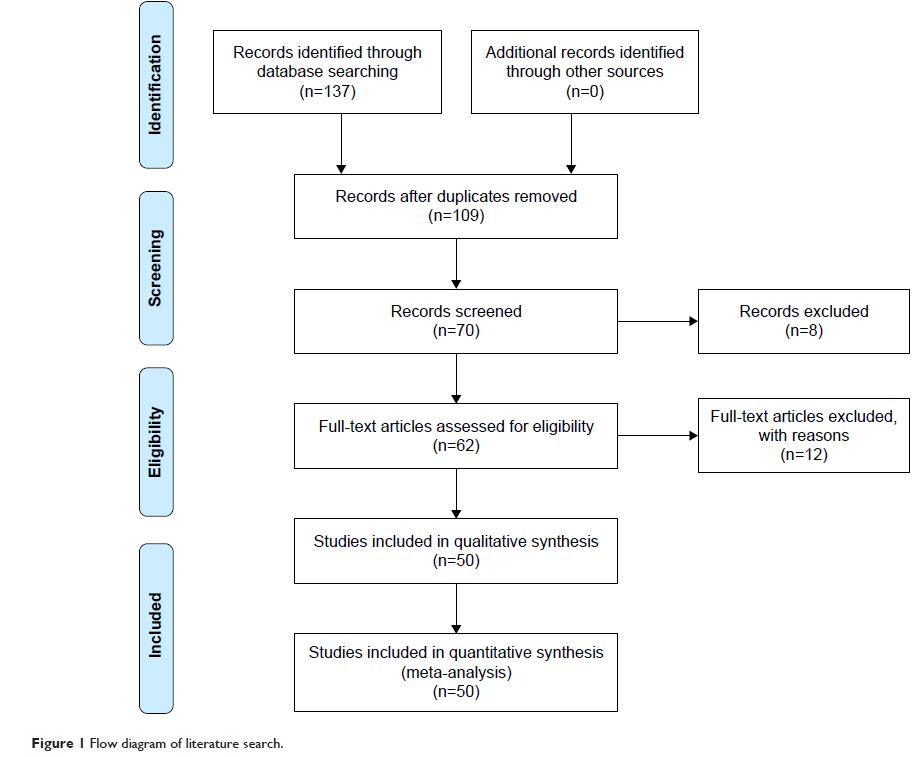9 0 6 7 6
论文已发表
注册即可获取德孚的最新动态
IF 收录期刊
- 2.6 Breast Cancer (Dove Med Press)
- 3.9 Clin Epidemiol
- 3.3 Cancer Manag Res
- 3.9 Infect Drug Resist
- 3.6 Clin Interv Aging
- 4.8 Drug Des Dev Ther
- 2.8 Int J Chronic Obstr
- 8.0 Int J Nanomed
- 2.3 Int J Women's Health
- 3.2 Neuropsych Dis Treat
- 4.0 OncoTargets Ther
- 2.2 Patient Prefer Adher
- 2.8 Ther Clin Risk Manag
- 2.7 J Pain Res
- 3.3 Diabet Metab Synd Ob
- 4.3 Psychol Res Behav Ma
- 3.4 Nat Sci Sleep
- 1.9 Pharmgenomics Pers Med
- 3.5 Risk Manag Healthc Policy
- 4.5 J Inflamm Res
- 2.3 Int J Gen Med
- 4.1 J Hepatocell Carcinoma
- 3.2 J Asthma Allergy
- 2.3 Clin Cosmet Investig Dermatol
- 3.3 J Multidiscip Healthc

MTHFR C677T 多态性和乳腺、卵巢癌的风险:一个包含 19,260 名患者和 26,364 名对照者的综合分析
Authors He L, Shen Y
Received 4 September 2016
Accepted for publication 13 November 2016
Published 6 January 2017 Volume 2017:10 Pages 227—238
DOI https://doi.org/10.2147/OTT.S121472
Checked for plagiarism Yes
Review by Single-blind
Peer reviewers approved by Dr Chang Liu
Peer reviewer comments 2
Editor who approved publication: Dr Jianmin Xu
Objective: Previous studies have found that many gene variations can be detected in
both breast cancer and ovarian cancer, which is beneficial for the elaboration
of the molecular origin of breast and ovarian cancer. Furthermore, many studies
have explored the association of methylenetetrahydrofolate reductase (MTHFR ) C677T polymorphism with the risk of breast
cancer and/or ovarian cancer; however, the results remained inconclusive.
Therefore, this study conducted a systematic review and meta-analysis to
evaluate the association between MTHFR C677T polymorphism and the risk of breast
and ovarian cancer.
Materials and
methods: A total of 50 studies with 19,260 cases and 26,364 controls including 39
studies for breast cancer and 8 studies for ovarian cancer were identified on
searching through PubMed, Embase, Web of Science, China National Knowledge
Infrastructure, WanFang, and Database of Chinese Scientific and Technical
Periodicals (VIP). Allele model, dominant model, recessive model, homozygous
model, and co-dominant model were applied to evaluate the association of MTHFR C677T polymorphism with breast cancer and/or
ovarian cancer risk. Moreover, the odds ratios (ORs) with 95% confidence
intervals (CIs) were calculated to assess the strength of the association
between MTHFR C677T polymorphism
and breast and ovarian cancer risk.
Results: A significantly increased breast cancer risk was observed in the overall
analysis (for C vs T, OR =1.19, CI: 1.12–1.28, P <0.05; for CC
vs TT, OR =1.20, CI: 1.10–1.23, P <0.05; for (CT+CC) vs TT, OR
=1.19, CI: 1.11–1.27, P <0.05; for CC vs (CT+TT), OR
=1.19, CI: 1.79–1.95, P <0.05), while no significantly
increased ovarian cancer risk was detected. In the subgroup analysis based on
ethnicity, a significant association of breast cancer and/or ovarian cancer
risk with MTHFR C677T polymorphism was observed in Asians.
Interestingly, there was no significant association between MTHFR C677T polymorphism and ovarian cancer risk
in Caucasians, whereas a significantly increased risk of breast cancer was
found in Caucasians.
Conclusion: This meta-analysis demonstrates that MTHFR C677T polymorphism
may be a risk factor for breast and ovarian cancer, especially in Asians.
Keywords: MTHFR , C677T , polymorphism, breast
cancer, ovarian cancer, meta-analysis
